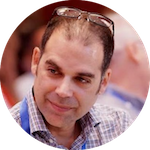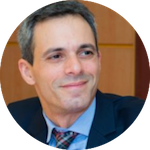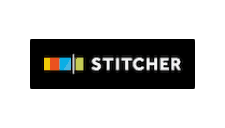Listen to Episode 29
Bonus: Watch the video of this episode on YouTube!
Our Guest Panel of Experts
Show Notes
This episode highlights so many of the key elements we need to work towards to make coaching successful. As expected, there are consistent themes across all stakeholder groups – we have the power to build those elements of a coaching culture every time we interact with our colleagues!
When you think about coaching within this innovative school environment? What are the essential elements for this to be successful? What do you need to build that coaching culture?
Rebekah (School Leader): We are nowhere near perfect with it. I think there’s a longer, bigger vision for all of the coaches to have some commonalities between how they coach and how they use time. If we’re asking (again as a midsize school) our teachers (who are teaching four or ve preps) to co plan, which is where I see coaches having real power – in the co-planning. If we’re asking them to co-plan with the learning support and IT and EAL – that’s a lot of meetings and a lot of talking. I think for us that’s part of our next step – trying to figure out what that’s going look like – systemize isn’t quite the right word, but we’ll roll with it for now. Systemize those conversations. I feel that teachers are becoming more and more open to coaching or co-planning in particular because of a lot of hard work that learning support in particular has done to make that happen. People are more open to people coming into their classrooms. But it can be a lot of meetings and sometimes coaches in their own sphere feel like they’re not getting all the time that they want – but then forgetting that there’s four other coaches who are trying to get to that one teacher who’s really open to coaching.
Tico (School Leader): The word is culture. You have to have the systems and the structures, the time, all those things. Those are the technical pieces. The most important part is the cultural piece. I think it became pretty popular in schools to read Patrick Lencioni’s book, The Advantage. It’s about organizational health. Anthony Muhammad has written some books about organizational health, but you’ve got to get that right. And the reason I talk about organizational health is because trust is so important. In a healthy school, you can be vulnerable and you can trust and you have people who want to grow and learn. That’s what a healthy school looks like. That’s a coach’s dream what I’m describing right? Then you can put in structures and those are important too. Don’t get me wrong, if we don’t put in the supports, how are we going to meet? Where are we going to find the time? Are we going to get the support we need? Those things are all important. I don’t want to minimize them, but the key component is the culture. Do you have a healthy culture that allows for vulnerability? For trust? And the idea that a good professional learns and grows just like they want their students to learn and grow.
Niki (School Counselor): One of the key things that struck me when I first went through my cognitive coaching training was, I was aware that some people had done it and I hadn’t yet. And that was just the nature of it because not everyone can do it together. It made me think, oh my goodness, like they’ve got this super power that I didn’t know about and have they been using it on me and I didn’t know about. So that made me a little bit fearful of this type of conversation. So thinking on from that, I think one of the ways that this can be really successful is (it’s difficult because not every institution can do this) but I think if everybody kind of is a coach or everybody is aware of that type of conversation, then I really do feel that it, takes away the hierarchy of it because it does feel hierarchical if some people are trained as coaches and other people don’t know about this almost “secret power”.
So maybe if in a perfect world (we’re talking about a utopian world) a really egalitarian approach to coaching so that everyone has access to those tools and you are very conscious that you’re choosing to go into that conversation and you’re aware of what’s happening – you’re not someone that this is being done too. I don’t know how that would work everywhere, but definitely being mindful of removing any kind of hierarchy in this I think is key to it being successful. Which then plays into that idea that you can make yourself vulnerable because we’re all in it together. It’s not just the bosses being trained as coaches or “special people” having this ability. It’s “all of us” can do this.
Adam (School Counselor): So first and foremost, I think I would come back (and maybe I’m biased), but I would come back with some sort of a social emotional answer to this, which is clearly that feeling of safety and the permission to be vulnerable with your colleagues is fundamental. We’re paid to be experts to a degree, but we’re also paid or expected to be learners as well. So if you can be vulnerable enough to continue to learn, then it just sets up the dynamics that will support that. So being able to go to someone and saying, “hey look, I don’t know the answer to this” and that’s really okay. You don’t need to know every answer to every educational or school-wide problem. Like that’s not what’s expected of us. I think if the culture supports that dynamic, then we’re free to go get the answers that we need and to rely on our colleagues for their contributions.
And with that, I think that sense of community as well as familiarity with what people are doing, (which also is fundamentally baked into safety) by the idea of being able to share what you do and what where are you currently uncomfortable? What are you actually on the edge of learning yourself that you’re really passionate about? If other people know that – it’s like …
“Well, you know what, go go talk to Adam. I know he’s doing this thing on (whatever it is -. Psychological first aid this year) and he’s trying to come up a turn-key model that people could use to support their students psychologically when they’re away from a more available mental health services – like if they’re away on expeditions or something like that – like coaches when they’re often with teams, and someone’s having difficulty, what are some of the strategies that they can use?”
But then I’ve already been so spouting off about that even if it’s only a half-baked cake at that point, at least people know that I’m on that already and while I may not be done with my learning process – at least people know I’m exploring that and then they can come talk to me and we can maybe then collaborate going forward. So we’ve got a couple of examples of that going on. Like positive discipline for instance. That’s an interesting model. It’s one that I’ve been exposed to. It’s not one that I personally really use that much, but I’ve seen the impact that it has on my colleagues. I love to see them take off and run with it. So I think just having that culture of safety and an openness and to be honest, humor. If you have humor mixed into it too, then you can really laugh about stuff. And then it’s like learning is fun. So you’re learning together, you’re exploring the areas that you’re maybe the least comfortable with, but it’s comfortable because you’re actually having fun through that process. So there’s a few of my initial thoughts anyway.
Merilyn (Teacher): I think personal relationships are really important. I think if you don’t have a good personal relationship with people that you’re working worth. If you’re asking questions, you’re putting yourself up to be vulnerable. So if you don’t have a good, positive ,personal working relationship with someone, then it’s all over right from the start because you won’t ask the things that you’re scared to ask about. So I think that’s really important. I also think it’s important that it’s not set as being particularly formal. That there is a very casual aspect to it. That it can be just a conversation, not like an interview-type-of situation. I think also that when coaches are talking about student learning and not just coming across as tech for tech’s sake is also really important because I think a lot of teachers or some teachers might get overwhelmed by pushing that kind of thing and lots of different changes. Just work with the person, building a positive relationship, keeping it casual and really focusing on the student learning rather than “have you tried this latest thing that’s come out?”
Jabiz (Teacher): I think a lot of it has to do with the culture and whether that’s the admin or top down or however culture is built in a school – such a difficult thing to kind of put your finger on. Where does it come from? But in fact it’s trust. I would say that we trust our teachers, we trust each other and I think admin trust teachers. So this course I keep referencing was this supervision and evaluation course I took at PTC. It was this idea of how do we hold teachers accountable? And so much of our time in that course was talking about that idea of evaluation. When you have a teacher who’s not pulling their weight, how can you identify it, call them on it and kind of hold them responsible? That model. The whole time I was there, I was like, “I’m so glad I don’t work in school like that!” I know people who are watching maybe do work at schools like that and I get it.
But that’s a very difficult place to work because you’re always kind of threatened and working on a model that you could be doing something wrong. Students are not going to improve or learn anything if you feel like you have to constantly be proving yourself and feeling that your admin doesn’t trust you or your department head doesn’t trust you and it becomes a bit of a performance and teaching is not meant to be performance. So it’s always a sense of who’s going to come in? And am I doing the right thing? I was talking to other leaders who said that doesn’t seem like a place where teachers are learning anything – they’re just kind of performing.
So going back to that model of how do you build that trust? It’s realizing that teachers are human beings. They’re not always going to be great. Then I think it’s really that idea of a master teacher (as someone who has always got it going on and they’re always switched on and they know exactly what they’re doing in their class). I know I’ve had times where my class is a disaster, like I’m in a bad mood and nothing is going well and if anyone was to walk in on that day, like if I was in a different environment, I’d be really nervous about that. But I know that if anyone walks in and they trust me enough to know that’s not everyday. Right? That idea of you’re putting yourself out there and saying, if I’m constantly realizing I’m not perfect and I can get better. So I think, going back to the beginning of your question, how do you do that? I think teachers have to feel trusted and teachers have to feel valued that what they’re doing has value. Even if it’s not anywhere on the rubric – it’s still what they’re doing – it’s that starting point. You have to believe in the idea of learning. You’re going to learn how to do it and it’s not impossible and you’re going to get better if you just put the time and effort into it.
Danny (School Librarian): I’m sure that I’m going to reiterate what some of our other colleagues had said. It’s all about relationships. When I first started teaching, we called it building rapport. It seems now they substituted the word. Relationships is more of the keyword. But in the end, it’s everything. It’s everything with the students. It’s everything with the teachers. It’s everything with the parents and Admin and back office staff. It’s everything. If you want to help somebody, you need to know that somebody. You have to have built a relationship there. There needs to be some trust there. They need to believe that you’re there to make their life better, easier add value, that sort of thing. And you can’t just rush in and do that. You can’t just push your way in. You can’t just shove your way in. It doesn’t matter whether you’re a coach or a librarian – they overlap the same in that respect as well. You need to build a relationship. You need to understand who they are and where they’re at and differentiate like they’re the individual being they are.
Katy (School Librarian): In a school where we have a coaching culture, (but we don’t really call ourselves coaches for the most part) part of it is in an openness – we do have an open door policy. Tourists come through twice a week, there’s always people all around and I cannot tell you how many times I’ve said “Messy means learning. It’s so nice to see you. Come through again.” I think that open culture is really important. I also think somewhere that not just allows but celebrates failure and then figures out how you’re going to move past that.
We have a nice culture of when something gets messed up and it goes badly, even if it’s something pretty bad, you come in and you say, “hey, this one’s wrong, here’s where we are.” Nobody says “alright, we’re going to hang you out to dry now and get angry about the things that happen.” They say “it’s okay, how can we move forward and fix this thing now?” I think that is really important. You have to make people feel like they can take risks and it’s going to be okay when it doesn’t go well. I like that a lot. But mostly just a spirit of collaboration, of bringing different people together for lots of different things. And that can be developed. Before we started this conversation we were talking about professional learning days and spending time on things that might (like wellness) that might not seem immediately relevant to what you’re doing. If you are a coach, being involved – like next week in the morning before I go to work, with some colleagues, I will making lunches for an organization that serves the homeless here in Yokohama. By spending that time with these people in a work context that is not specifically about my job, I’m developing those relationships and having casual conversations that will help make that coaching happen later. So the social aspect of schools is really important. I think those are the three big things for me.
JOIN OUR MAILING LIST
Sign up for our #coachbetter mailing list to receive a newsletter every other week all about coaching in a school context. Each FREE newsletter features one of our relevant coaching videos, a practical coaching tip you can use right away, plus a great resource created or selected by the Eduro Team to help you #coachbetter!
CLICK HERE
#COACHBETTER ON FACEBOOK
Connect with other coaches, just like you, in our free #coachbetter Facebook group:
CLICK HERE
EVEN MORE COACHING RESOURCES
See all of our Eduro Learning coaching resources!
CLICK HERE
If there’s something you’re interested in, and we don’t have it, let us know!
PRIVATE MENTORING
Or if you want to see what the private mentorship experience is like, check out our Private Coaching sessions – and get your first coaching session for free – here:
CLICK HERE
ABOUT #COACHBETTER
We’re passionate about the impact instructional coaching can have on school culture, student learning and teacher professional growth. This podcast allows us to share inspiring ideas about coaching through conversations with innovative educators from around the world. Let us help you #coachbetter! We would love to hear your thoughts, ideas and questions so please drop us a comment below!
The Coach Certificate & Mentorship Program
An academic year of professional learning designed by coaches, for coaches!Do you want to feel more confident and inspired in your role as a coach?
Your Show Host
Kim Cofino

We love sharing great content!
Get authentic, relevant, practical content delivered right to your inbox!
Connect with Us












